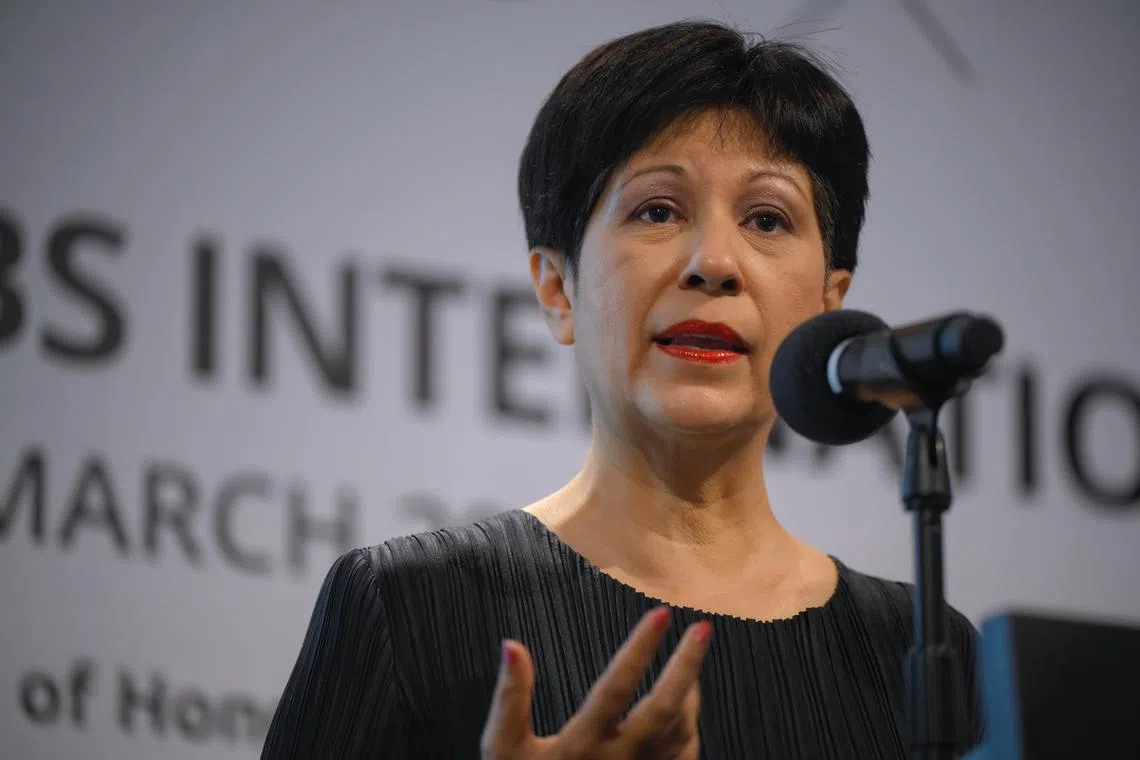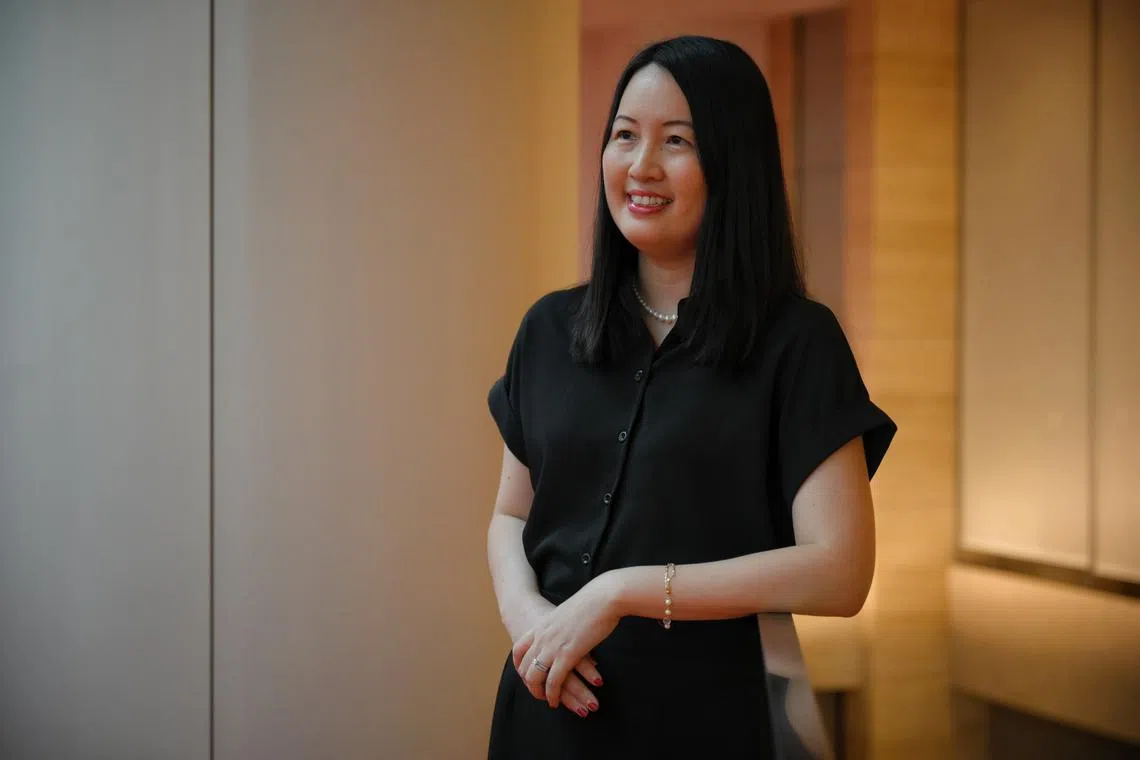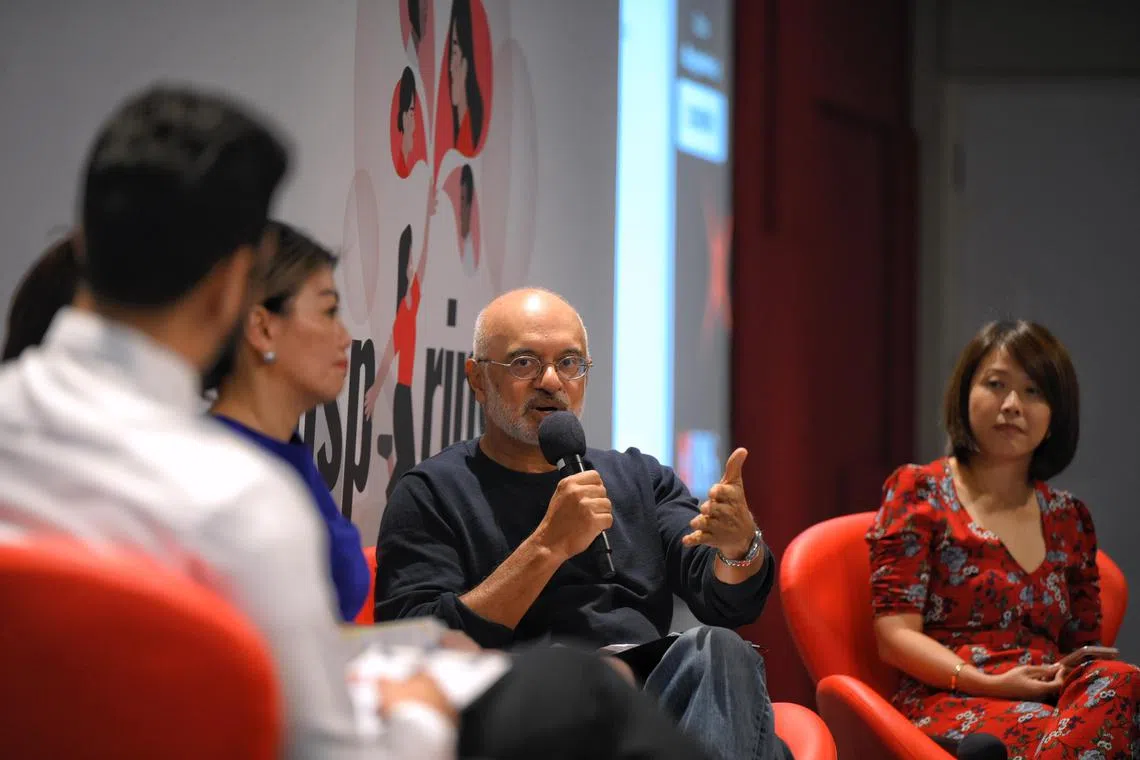Make it part of company culture to support women in the workplace, Indranee urges employers
Sign up now: Get ST's newsletters delivered to your inbox

Minister in the Prime Minister’s Office Indranee Rajah said that organisation leaders have to set the tone in establishing a culture of mutual respect.
ST PHOTO: MARK CHEONG
Follow topic:
SINGAPORE - More accommodating and flexible workplace practices, as well as a culture of sharing parental responsibilities, will help to support women in the workforce, said Minister in the Prime Minister’s Office Indranee Rajah on March 15.
She added that organisation leaders have to set the tone in establishing a culture of mutual respect and empathy, and where meeting work-life needs is also part of company culture.
“This includes putting in place fair and merit-based appraisals. It is also important to create a supportive workplace environment,” she said.
Ms Indranee was speaking at an event to commemorate International Women’s Day, organised by DBS Bank and SG Her Empowerment, an independent non-profit organisation that aims to empower girls and women.
In her opening address, she listed some of the measures companies can take to support women in the workplace.
For instance, flexible work arrangements can help support employees in balancing their work and family commitments, she said.
She added that the tripartite guidelines on how to navigate requests for flexible work arrangements, which will be launched in 2024, can help to facilitate such discussions.
Firms can also enable greater shared parental responsibility by supporting men in their roles as husbands and fathers, Ms Indranee said.
More paternity leave will be made mandatory in the future, she added. Paid paternity leave was increased to four weeks, up from two weeks, for working fathers of Singaporean children born on or after Jan 1, 2024. This increased leave is currently voluntary.
“Our current take-up rate for paternity leave is only just over 50 per cent. There is room to improve the take-up and utilisation,” Ms Indranee said.
“We are going to mandate the additional paternity leave as soon as possible. We are also actively exploring how to increase paid parental leave, and will work closely with tripartite partners to take into account the workplace adjustments that may be required to cover for employees’ extended absences.”
Companies can also be more understanding and supportive when employees have to go for fertility treatments, she added.
“This can be emotionally quite exhausting. I think for the women who go for fertility treatments, it helps if the husband can be there with them, but not all employers understand that,” she said.
Firms can also ensure that they ask women for their opinions and let them be heard.
“I think it is maybe because we have been brought up not to put ourselves forward, not to be pushy. Whatever the reason, the fact remains that generally speaking, women may not be as vocal when it comes to offering opinions or when it comes to making the corporate choices,” she said.
Companies should also test women out in leadership roles and give them a chance, she added.
Her remarks come as professional services firm Deloitte reported on March 14 that gender parity in the boardroom is unlikely to be achieved before 2038 globally, without greater focus and action.
In Deloitte’s study, Singapore’s 20.8 per cent of board seats held by women trails the global average of 23.3 per cent, although it surpasses the Asia-Pacific average of 14.8 per cent and the South-east Asia average of 19.9 per cent.
Meanwhile, at DBS, women make up half the workforce and 41 per cent of senior leadership. They also hold 20 per cent of board seats.

Ms Jenevieve Koh, DBS managing director of global financial markets, believes that diversity can be a powerful competitive advantage for companies.
ST PHOTO: MARK CHEONG
Ms Jenevieve Koh, DBS managing director of global financial markets, said: “I believe that diversity can be a powerful competitive advantage for companies.
“For enduring change, it’s important to have systems and processes that are designed to promote gender equity, strong support from top leadership to set the right tone, as well as programmes of change that drive momentum and facilitate mindset shifts to support women in being able to excel both at work and home.”
She added that major processes at DBS like promotions, high-potential nominations and compensation are data-driven to check against unconscious bias.
“When recruiting for key roles at senior positions, we also ensure a gender-diverse candidate slate with at least one female candidate,” she said.
Indeed, more has to be done, despite the progress that has been made to get women into the workplace and gain access to more choices in how they lead their lives, panellists said during a discussion held at the same event to debate if women’s lives are better today compared with the past.
DBS chief executive officer Piyush Gupta said during the discussion that there is a gap between reality and expectations. He cited the example of girls having the same education as boys, but still being under-represented in fields like science, technology, engineering and maths, due to stereotypes that women do not enter areas like engineering and computer science.

DBS chief executive officer Piyush Gupta (centre) said that there is a gap between reality and expectations.
ST PHOTO: MARK CHEONG
“We’ve won a lot of battles, but the biggest battle is not won, and that is the battle of expectations and stereotypes. We’ve been layering on expectations, and the big challenge is how we redress those expectations (of) what is the role of a woman in society, and what is the role of a man in society,” he said.
“That takes a lot of work, and we have to work hard to change societal expectations. Until we do that, we’ll keep having this big gap between reality and expectations.”


